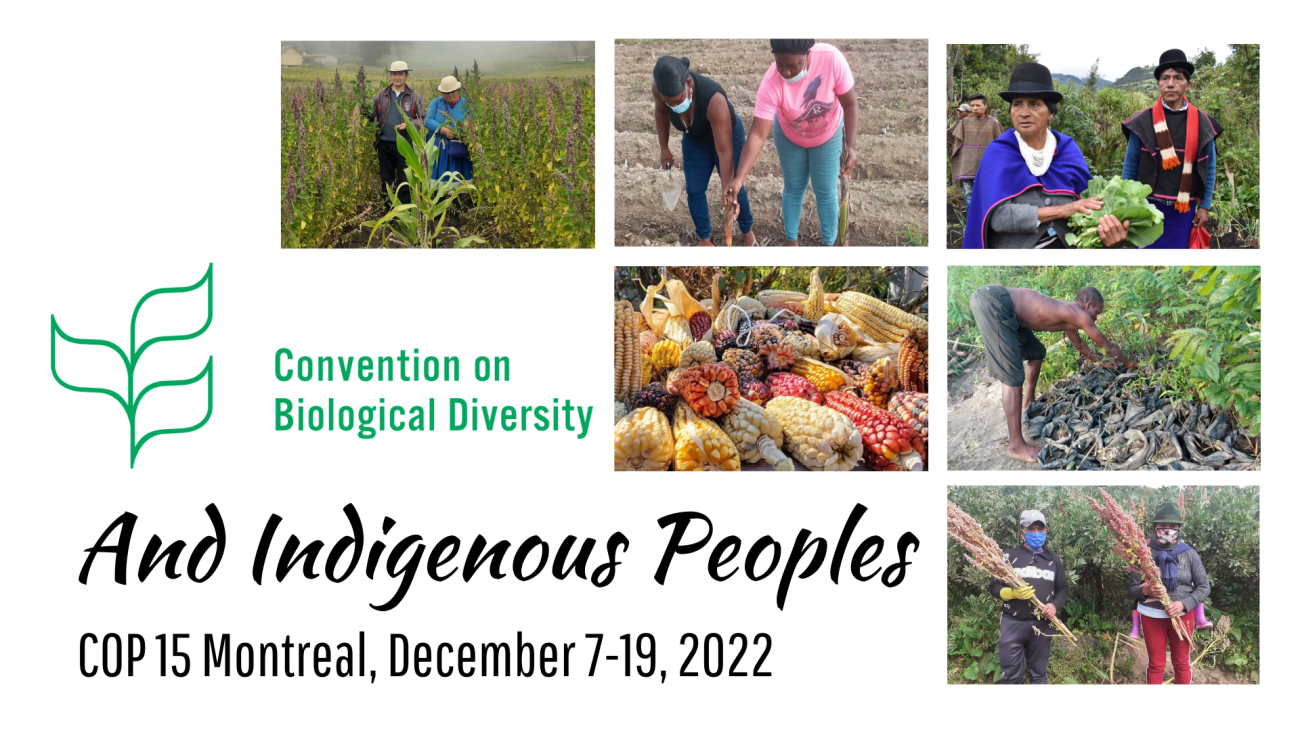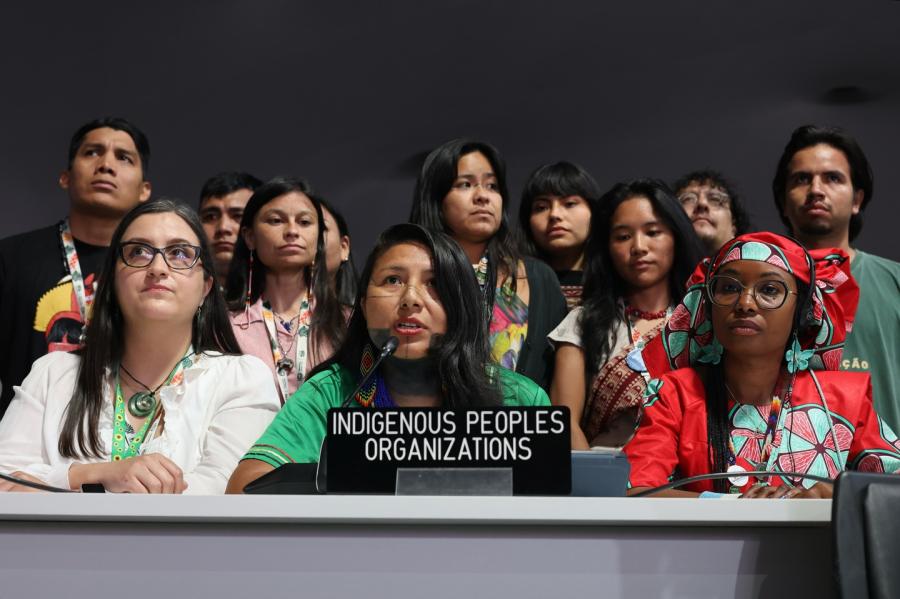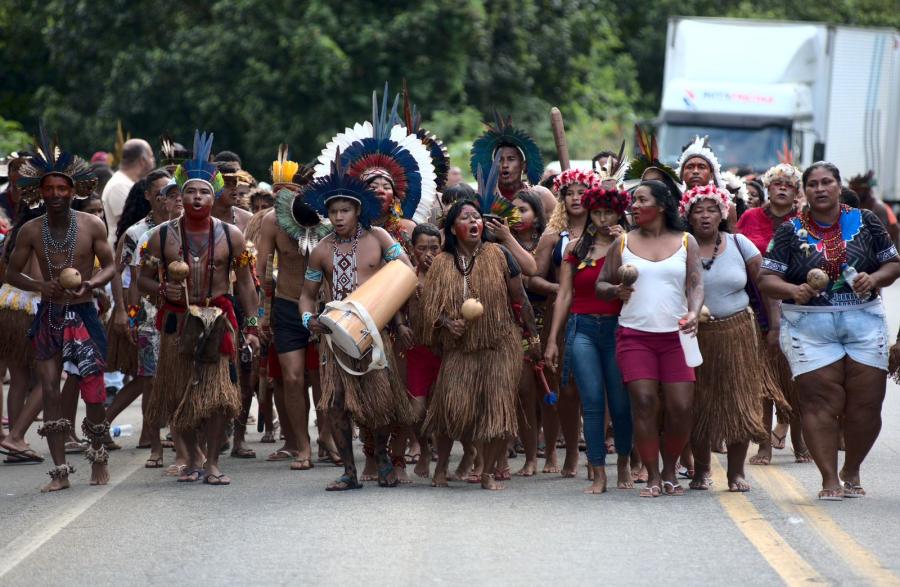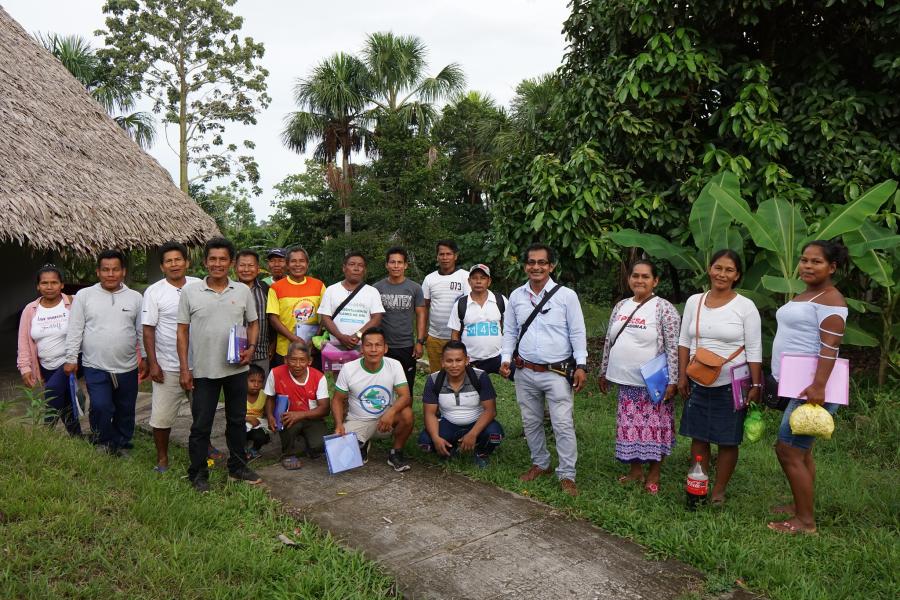
From December 7-19, 2022, in Montreal, Canada, the 15th Conference of Parties to the Convention on Biological Diversity (CBD COP15) is bringing together the countries who are parties to the Convention and various observer stakeholders, including Indigenous Peoples. A major goal of COP15 is to develop and approve the Post-2020 Global Biodiversity Framework (GBF), also known as the “Paris Agreement for Nature.” This Framework will provide a strategic vision and commit States to the Convention’s Goals, Targets, and Pathways for the conservation, protection, restoration, and transformation in relationship with biodiversity by 2030 in line with the 2030 Agenda for Sustainable Development and its Sustainable Development Goals and ensure that, “by 2050, the shared vision of living in harmony with nature is fulfilled.” Biological diversity is fundamental to the life, health, and well-being of the planet and Peoples, but unfortunately right now around one million animal and plant species are at imminent risk of extinction because of human activity, climate change, the fossil fuel industry, industrial agriculture, and large-scale commercial fishing.
At the Opening of the 5th Meeting of the Open-Ended Working Group on the Post-2020 Biodiversity Framework, parties reviewed the proposed organization of work and agreed to use the Outcomes of the Work of the Informal Group on the Post-2020 Global Biodiversity Framework coming out of the meetings held in June, in Nairobi, Kenya, as the basis of work. Indigenous leaders representing the International Indigenous Forum on Biodiversity have been actively participating in the discussions of the text that will be sent to the COP15 for its approval, to ensure that Indigenous Peoples' rights are upheld and that adequate language is included in the text that protects and promotes the rights of Indigenous Peoples.
Biodiversity fulfills basic needs, including food, traditional medicine, livelihoods, and activities, and it is fundamental to the cosmovisions for the most impoverished people, including the world's Indigenous Peoples from all seven socio-cultural regions. That is why humanity needs to rethink its relationship with nature and recognize the human right to a clean, healthy, and sustainable environment in accordance with resolution 48/13 adopted by the Human Rights Council on October 8, 2022.
Securing Indigenous Peoples’ Rights
Cultural Survival is at COP15 in Montreal and is advocating for the integration of Indigenous rights and human rights in the field of biodiversity conservation and the future Post-2020 Global Biodiversity Framework. Such an approach will help promote sustainable development through the recognition of the right to the lands, territories, and waters of Indigenous Peoples, including their traditional ways of life and management practices as described in the draft text of Target 3 of the Post-2020 Global Biodiversity Framework. Cultural Survival particularly notes the need to legally recognize Indigenous Peoples' traditional territories or territories under Indigenous management as equal to protected areas in their status, position, and governance, but with the right to traditional Indigenous economic development. Parties to the Convention must respect and recognize Indigenous Peoples' invaluable contributions to the management of these territories and the protection of the world’s biodiversity. They must also uphold Indigenous Peoples' rights according to international law and the United Nations Declaration on the Rights of Indigenous Peoples, as a minimum standard.
The human rights approach should also include the protection of Indigenous rights and environmental defenders, who are constantly exposed to assaults, criminalization, violence, and murder. Indigenous Peoples have the right to participate in decision-making and developing policies and plans of action related to their territories. Any actions related to their traditional territories and lands must be carried out only with the impacted Indigenous Peoples’ Free, Prior, and Informed Consent (FPIC) and the norms and standards of international law. Given Indigenous Peoples’ critical and unique role in environmental conservation and biodiversity protection, implementation of Indigenous Peoples’ rights is, in turn, fundamental to both these environmental goals and the protection of the most vulnerable and biodiversity-dependent communities in the world.
This implies the need for a fair and equitable distribution of benefit-sharing from the use of genetic resources and Target 13 - including digital information on the sequence of genetic resources, especially the use of traditional knowledge associated with genetic resources. This should apply to all access and benefit-sharing instruments in accordance with the Convention and the Nagoya Protocol on ABS. Any access to traditional Indigenous Knowledge associated with genetic resources, including material accidentally collected during research by scientists, should be used only under mutually agreed conditions, Free, Prior and Informed Consent, and equal sharing of benefits from the use of this knowledge, genetic resources, derivatives or their parts.
Direct Access to Finance
The issue of direct access to finance for Indigenous Peoples, under the Nature and Climate programs, is one of the key issues that will be addressed in the work of the 15th Conference of the Parties to the CBD. Cultural Survival joins the call of Indigenous activists for flexible, direct, fair, and equitable access to funding for Indigenous-led organizations in all regions. On November 12, 2022, at the COP27 UNFCCC negotiations in Egypt, the International Indigenous Peoples' Forum on Climate Change presented the recently adopted Principles and Guidelines for adequate and accessible financing. Advocating for these financing rights and promoting the Indigenous Principles and Guidelines will continue in the upcoming negotiations in Montreal, Canada.
Another of Cultural Survival's priorities for the upcoming event will be to advocate on Target 15 Post-20202 Global Biodiversity Framework, which directly links biodiversity impacts and financial flows from business. Cultural Survival specifically notes the need for government oversight to regulate and ensure accountability of business impacts on biodiversity. Any financial flows affecting and impacting biodiversity, especially the lands, territories, traditional lifestyles, and well-being of Indigenous Peoples, must not only be open to reporting but also fully measurable, both qualitatively and quantitatively. The reporting and responsibility of businesses must be not only informational, but also practical: it must include restoration of disturbed territories and ecosystems, accounting of collateral and deferred damage, payment of fines and compensations, and prevention and resolution of Indigenous human rights violations and other conflicts that arise.
Ensuring Gender Equity
Supporting and promoting the rights of women and girls is also critical to the Post-2020 Global Biodiversity Framework and is a key advocacy priority of Cultural Survival. The last draft of Target 22 of the Global Biodiversity Framework opens up new opportunities for women and girls; this target must be adopted to ensure that women can effectively participate at all levels of decision-making, policy-making, and implementation related to biodiversity through mainstreaming gender equity across all biodiversity objectives and goals. Indigenous women are connections between the past, the present, and the future, and they are guardians of biological diversity of living things around us.
Discontinuing the Use of the Collective Term “Indigenous Peoples and Local Communities” or “IPLC”
Finally, in addition to the pressing need to integrate human rights principles and norms into the Post-2020 Global Biodiversity Framework, we emphasize the enshrined collective rights of Indigenous Peoples and a growing international position to separate the terms "Indigenous Peoples and Local Communities" or "IPLCs." The combination of these two different entities disregards the collective rights to which Indigenous Peoples are entitled as distinct, self-determining Peoples.
The UN has long recognized Indigenous Peoples as a distinct constituency. This position was cemented by the General Assembly when it adopted the UNDRIP, which affirms Indigenous Peoples’ inherent rights. Conflating the two terms has the potential to distort the representation of the cultures and practices of Indigenous Peoples in conservation spheres, as this terminology does not acknowledge the complexity and uniqueness of the meaning of land and territory to Indigenous Peoples.
Indigenous Participation at COP15
Cultural Survival acknowledges the great efforts of brothers and sisters of the International Indigenous Forum on Biodiversity in the organization of the Indigenous Caucus which had two full days of discussions about Indigenous participation and preparation on December 1-2, 2022, and has continued meeting every day to strategize around Indigenous participation during the negotiations. Indigenous delegates are participating in the negotiations, and meetings with parties and stakeholders, and will be participating in side events as well as will be presenting an Indigenous hub at Place Quebec located on floor 2 of Palais de Congres.
The Indigenous Leadership Initiative Presents the Indigenous Village at COP15
From December 9 - 11, the Indigenous Leadership Initiative will be hosting an Indigenous Village in the Green Zone at COP15. The village will showcase the work of Indigenous Peoples from the region, Canada, and around the world, and it will offer an Indigenized gathering space for Indigenous participants at COP15.
The village includes the installation of an Innu shaputuan, or traditional tent, with a hundred-foot-long, heated conference zone that can accommodate 120 people. It will also be a space for cultural displays, Indigenous arts, and traditional food demonstrations will take place alongside the structures.
Visit the Indigenous Village agenda here: The Indigenous Leadership Initiative Presents the Indigenous Village at COP15 — Indigenous Leadership Initiative (ilinationhood.ca)
Statement of International Indigenous Forum on Biodiversity at the Opening of COP15
IIFB Positions on the Post-2020 Global Biodiversity Framework
Directly from COP15
Jennifer Tauli - Corpuz Talks about the Important Factors for Indigenous Peoples at COP15
In this podcast, we speak to Jennifer Tauli-Corpuz (Kankana-ey Igorot), Global Policy and Advocacy Lead for Nia Tero, who tells us about the Post 2020 Framework, Resource Mobilization, and The Working Group on Article 8j.
Indigenous Peoples on the Ground Are Doing Much for Biodiversity
In this podcast, we hear from Joji Carino (Ibaloi), who tells us about the great work that Indigenous Peoples are doing on the ground and she also elaborates on the Post-2020 Global Biodiversity Framework. Joji Carino is Senior Policy Adviser at Forest Peoples Programme.
The Destruction of the Environment Is Related to Violating the Rights of Indigenous Peoples
In this podcast, we hear from Maurizio Farahn Ferrari, Senior Policy Advisor at the Forest Peoples Programme on the story of the Global Biodiversity Framework.






